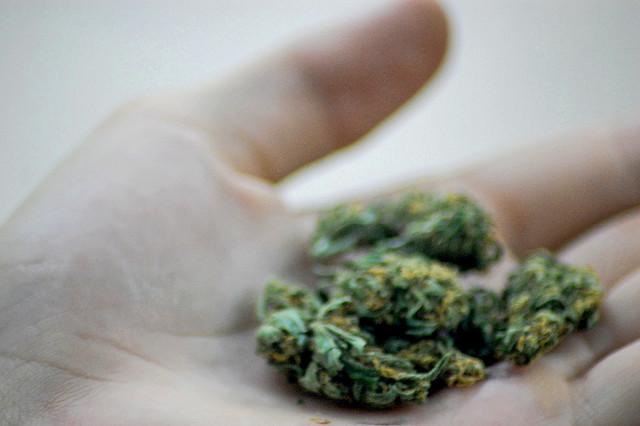During the 2018 midterm elections, Wisconsin voters will participate in the national debate of legalizing medical and recreational marijuana by answering referendum questions at the polls to determine statewide policy.
In 16 Wisconsin counties and two cities, voters will have the opportunity to answer referendum questions on their ballots come Nov. 6. Marijuana is currently only available for people with a seizure disorder and updated documentation — outlined in the CBD-only bill. But the results from the referendum will influence how the state government addresses marijuana.
Rep. Melissa Sargent, D-Madison, has been an advocate for medical and recreational uses of the product. Back in July 2017, Sargent proposed a bill to bring legalization to the state legislature and continues to work with other like-minded Wisconsin politicians to promote it.
“I am very much in support of legalization,” Sargent said. “I think the most dangerous thing about marijuana in Wisconsin is that it is illegal.”
A recent Marquette law school poll shows that regardless of party affiliation, 60 percent of Wisconsin residents support legalizing and taxing marijuana. Sargent is interested to see how this data will compare to the referendum results.
While not all questions will be the same across the 16 counties, they will address the major details of the debate. According to the Milwaukee Journal Sentinel, the following counties will see these referendum questions.
Milwaukee, Dane, La Crosse and Rock will discuss legalizing marijuana for adults ages 21 and older for personal use. Single ballot questions will ask about taxing and regulation of sales.
Brown, Clark, Forest, Kenosha, Langlade, Lincoln, Marathon, Marquette, Portage and Sauk will have questions referring to possible medical use only.
Eau Claire and Racine will have legalizing recreational and medical uses as well as taxation on their referendums. Racine voters will also have one additional question about the decriminalization of marijuana. Finally, Waukesha will answer questions about marijuana for medical purposes.
According to Sargent, these are advisory referendums, which means they are only taking polls on the public’s opinion. While they won’t lead to any immediate changes, the questions will help legislators craft new laws associated with marijuana and even consider passing Sargent’s proposed bill.
Several studies have revealed the benefits of medical marijuana in treating mental illnesses such as anxiety and depression. It’s also proven to be a safer alternative to addictive painkillers like opioids, and marijuana could lead to a drastic decline in Wisconsin’s current opioid crisis.
But College Republican Representative Charles Mueth suggests that this could lead to an entirely new problem.
“I think there are cases when medical marijuana helps people, but there are other painkillers out there where for recreational use, they’re not allowed,” Mueth said.
As for recreational marijuana use, Sargent and many other legislators find that marijuana could cause large economic stimulus from taxes and could provide well-paying jobs to Wisconsin workers. Less dangerous than cigarettes and alcohol, studies from University of Notre Dame show that people are more likely to use marijuana than to drink alcohol. The study was on the substitution effect which found that people choose marijuana over alcohol.
According to the National Center for Biotechnology Information, this decreases the likelihood of drunk-driving accidents.
College Republicans member Sara Sedgwick worked for a 501c law firm over the summer that is approaching marijuana legalization from a business perspective.
“My one hesitation is that there’s no way to properly test for DWI’s, and that’s a huge problem for me,” Sedgwick said.
But while marijuana could provide new economic opportunities to Wisconsin, the new market creates tension on the state’s famous beer distributors. According to Sedgwick, legalization of marijuana would lead to a large decline in alcohol sales, and the brewing companies would suffer great losses with the competition. And as one of Wisconsin’s major exports, this could create complications within the state’s economy.
The referendums will voice the Wisconsin public’s overall opinion of marijuana, and research from the Marquette Law School showed that results may lean toward legalization.
Because voters answers will be anonymous, political affiliation will play less of a role in answers.
Concurrent Madison heroin overdoses prompt law enforcement to consider fentanyl-laced batch
“I think it’s past time that we join the 26 other states around the country, many of them bordering the state of Wisconsin, and remove the prohibition of marijuana on our state and invest in true economic stimulus in our community,” Sargent said.


